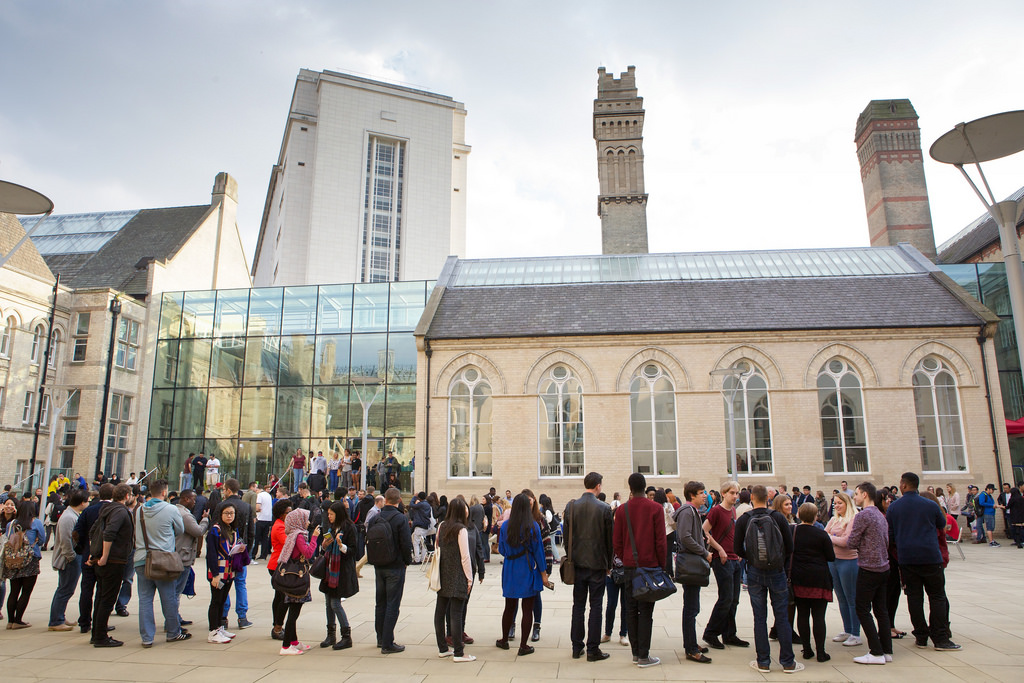The time that you have patiently been waiting finally has come! Congratulations for arriving safe and sound in the UK!
To kick off the new academic year at the university, the student unions usually have prepared the freshers’ week, the equivalent to Ospek or orientation day in Indonesia. In the UK’s universities, ‘freshers’ refer to new undergraduate students, but in the reality, the freshers’ week is also for Master and PhD students. Hence, it is also known as ‘welcome week’. Unlike some conventional orientation programmes in Indonesia that sometimes involve irrelevant chores, bullying or even physical punishment, the welcome week is all about getting to know your campus, friends, professors and have fun as much as you can! During the day usually the school will conduct several talks to make you on board as quickly as possible. The topics range from how to survive in the UK, how to write an academic paper, including referencing, the overall timeline of the department in the next one year to the mechanism of tuition fee payment. Some universities will also provide you tour de campus or surrounding areas so that you will find your way around your school or location nearby. The blast, however, does not end when the sun sets! Freshers’ week is usually known as a week full of fun events and parties.

Although your attendance is not compulsory, it is sometimes helpful to settle in quickly with your new environment. Not to mention, this will be your first encounter with your classmates- whom you might have bantered with on Facebook group. If you have a tight schedule that might conflict with administrative matters upon your arrival, you can selectively attend only some events.
In this post, I will outline several activities during the welcome week that you can prioritise to attend.
1. Students’ clubs fair

This is the time where all the students’ clubs showcase their achievements and pitch themselves to get members. Myriad numbers of students’ organisations can get you overwhelmed, so you need to be very strategic in visiting their booth and even subscribe to their clubs. Firstly, you have to remember that studying abroad requires you to work extra due languages barriers or more demanding works, such as countless readings for each class. You have to bear in mind that being active at the university’s organisations will not give you an excuse to fail miserably at courses. At the same time, you also still want to enjoy exploring the city or other countries during your stay. To manage your time and priorities better, it is better for you not to commit yourself to too many clubs. Secondly, subscribing yourself to many clubs also can cost you lots of money. At LSE, the clubs require you to pay membership fees from £1.5 to £3.
So, how to plan strategically? Firstly, you can subscribe to activities that you enjoy and can set you free from stress, for example, dance clubs, badminton, swimming, travelling or karate clubs. If you are keen to join more serious clubs, such as management consulting or entrepreneurship, you have to firstly reflect on your aspiration after graduation and contrast it with your existing skills or networks. By identifying the gap, you can think strategically about how your membership to the club will help you in acquiring new skills and expanding networks.
2. The department-organised events

Your department will usually set an introductory meeting to explain the rules of games in your department. I think this is crucial so you can manage your expectation and know the standard of your department. The overview of your programme timeline will also be useful for you to plan things ahead. For example, I knew from the introductory meeting that Michaelmas term (September-December) will be less busy than the Lent term (January-April). Hence, if I wanted to take up more responsibilities in the clubs, it’d be better to do it in the Michaelmas term. The meeting will also allow you to chat informally with your head of the department or other professors.
3. Perks, perks, perks
During the week, you will have lots of perks a.k.a free or discounted stuff, ranging from free pizza for lunch, discounted city bus tour, free massage, free administration fee for a bank account, and discounted gym membership. Most of these benefits will be offered to you exclusively during the week, so make the most out of it!
4. Fun events

If you are not comfortable in attending parties at night clubs, chill there are so many fun activities that do not involve alcohols and dancing. During the day, you can attend picnics (the committee sometimes also give you free foods!) and free breakfast. During the night, the student union also arranges some get-together to a cinema, local theatre shows, or just playing bowling. So, don’t worry because there is various selection of activities that can suit your preference. If your university does not have your preferred activities, feel free to throw the invitation on your department’s Facebook groups for the dinner somewhere else. I found one of my close friends during my stay in London because I casually invited my classmates to have dinner with me at Nando’s. So, who knows you also can get your closest support system through this way?








[…] dengan minat kamu, dan walaupun mungkin ada acara pameran kegiatan non-akademik di kampus seperti fresher’s week di Inggris, tidak ada salahnya mencari dulu, […]